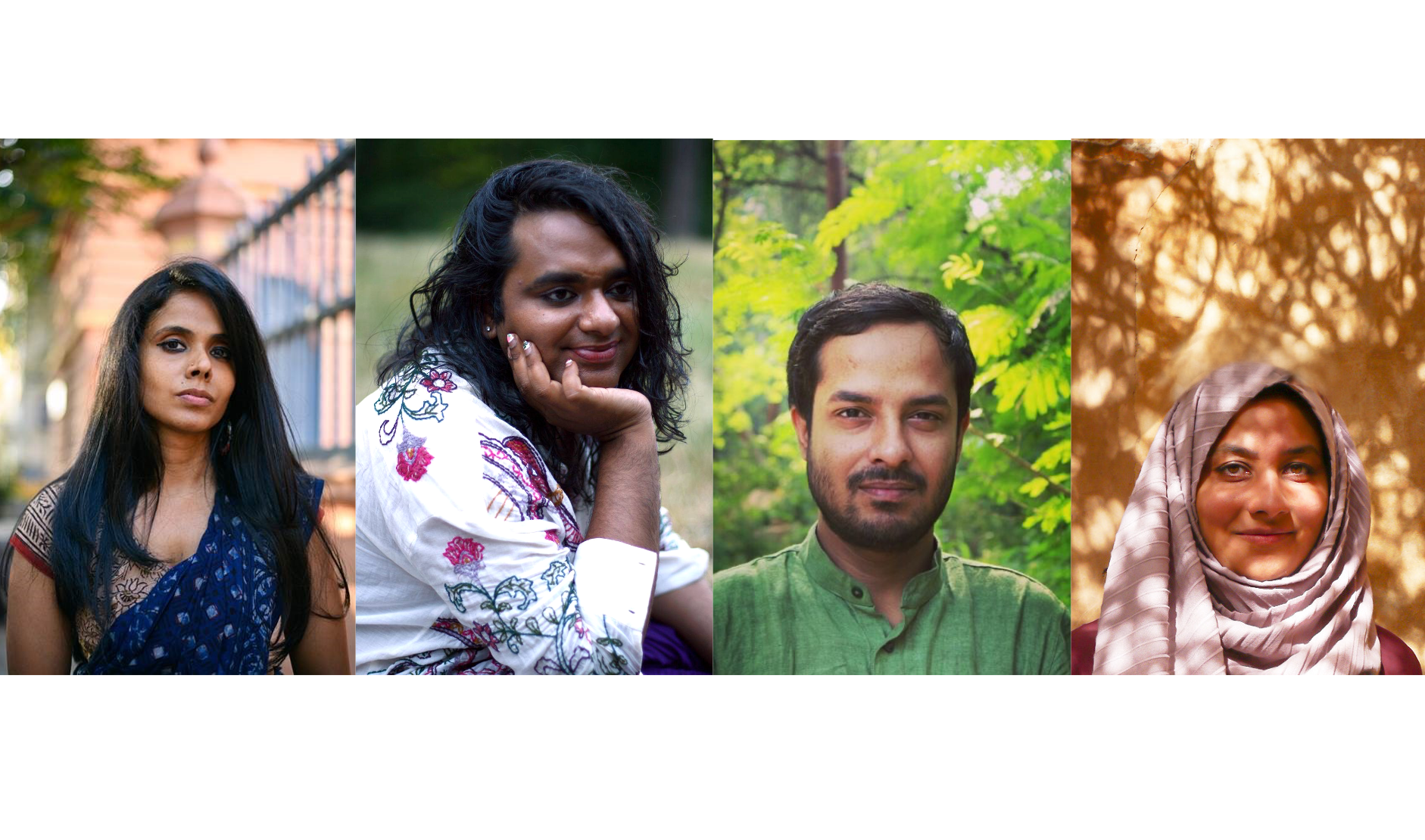If Undelivered, Please Return To...

Lyrikabend 19.11.2022 19:00
Mit Abul Kalam Azad, Uzma Falak, Reyazul Haque, Meena Kandasamy
SpracheN Englisch, Urdu, Hindi
FREier Eintritt Spenden willkommen
Besuch SAVVY ist mit dem Rollstuhl zugänglich.
Bitte tragt eine Maske während Veranstaltungen.
Was bedeutet es, Briefe zu verschicken, wenn die Adresse und Adressat in eine unergründliche Abwesenheit gezwungen werden? Was ist, wenn die Absenderin keine feste Adresse hat? Oder wenn die Sendung zwar ankommt, aber abgefangen und nie zugestellt wird? Kann ein Brief als Gestammel, als Traum, als Gerichtsprotokoll, als Testament oder als Elegie ankommen?
Fühlt Euch eingeladen zu einem Lyrik-Abend, an dem die Dichter:innen und Zuhörenden zu Zeug:innen dieser verlorenen Adressen und abwesenden Adressat:innen, von nicht abgeschickten oder nicht zugestellten Sendungen werden...
Abul Kalam Azad is a South Indian Muslim poet of lesbian origin based in Berlin. How does a rose with burnt petals sound when whispering love letters from an exiled garden to an eclipsed moon? Her words mimic that, in vain. They have previously found shelter in various journals and anthologies like Cha: An Asian literary journal, Tokyo Poetry Journal, The Sunflower Collective, Raiot, Kindle Magazine, Muse India, Best Indian Poetry Anthology, A Map Called Home Anthology.
Uzma Falak was born and raised in Kashmir’s Srinagar and is currently pursuing her PhD in anthropology at the University of Heidelberg. Her poetry, essays, and reportage have appeared in Disclaimer, Economic and Political Weekly, Guernica Magazine, The Baffler, Adi Magazine, Al Jazeera English, Warscapes, The Caravan, The Electronic Intifada, Palestinian Chronicle and others. In 2017, she won an honorable mention in the Society for Humanistic Anthropology’s Ethnographic Poetry Award. Her documentary film, Till Then The Roads Carry Her, exploring Kashmir women’s repertories of resistance, has been screened at the Art Gallery of Guelph, University of Copenhagen, University of Warsaw, Karlstorkino, Tate Modern, and others.
Reyazul Haque has worked as a journalist, and editor at leading media and publishing houses such as Tehelka and Penguin Random House in India. He studied aesthetics at Jawaharlal Nehru University, New Delhi where he was also active as a playwright. Currently, he is a doctoral candidate at Humboldt University, and a research fellow at Leibniz ZMO, Berlin. He writes poems in Hindi and English that have been published in various literary magazines and journals in India. He translates Arundhati Roy, Anand Teltumbde, Eduardo Galeano and Bertolt Brecht.
Meena Kandasamy is is an anti-caste activist, poet, novelist and translator, and the winner of the prestigious Hermann Kesten Prize by the PEN Centre in Germany. Her writing aims to deconstruct trauma and violence, while spotlighting the militant resistance against caste, gender, and ethnic oppressions. She explores this in her poetry and prose, most notably in her books of poems such as Touch (2006) and Ms. Militancy (2010), as well as her three novels, The Gypsy Goddess (2014), When I Hit You (2017), and Exquisite Cadavers (2019). Her latest work is a collection of essays, The Orders Were to Rape You: Tamil Tigresses in the Eelam Struggle (2021). Her novels have been shortlisted for the Women’s Prize for Fiction, the International Dylan Thomas Prize, the Jhalak Prize and the Hindu Lit Prize.
She has been a fellow of the University of Iowa's International Writing Program (2009), a Charles Wallace India Trust Fellow at the University of Kent (2011) and a fellow of the Berlin-based Junge Akademie (AdK). In 2022, she was elected as a Fellow of the Royal Society of Literature (FRSL), United Kingdom.
Activism is at the heart of her literary work; she has translated several political texts from Tamil to English, and previously held an editorial role at The Dalit, an alternative magazine. She holds a PhD in sociolinguistics. Her op-eds and essays have appeared in The White Review, Guernica, The Guardian and The New York Times, among other places.
